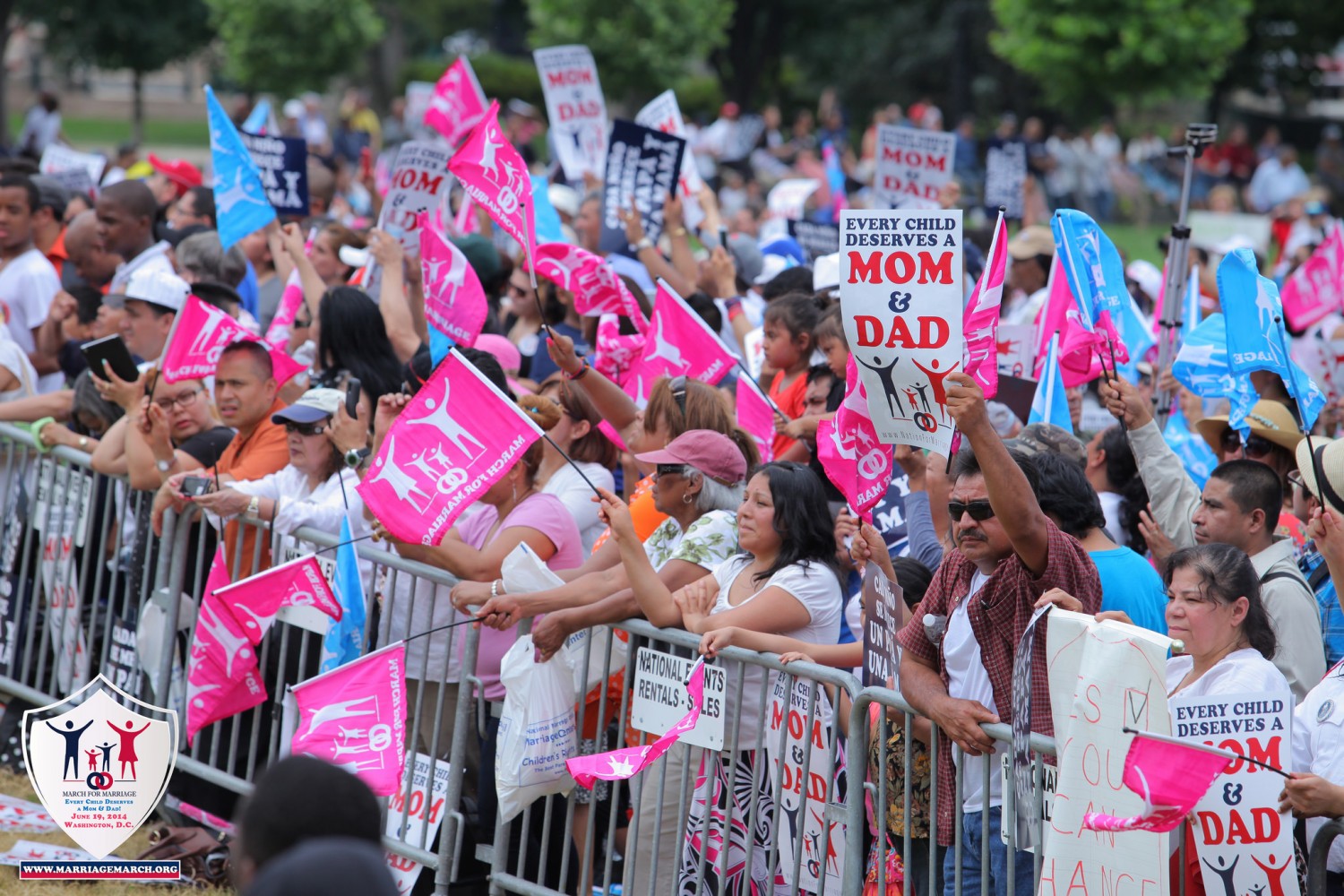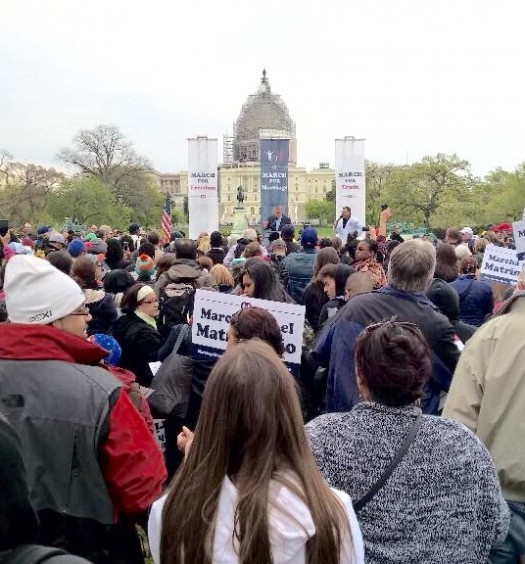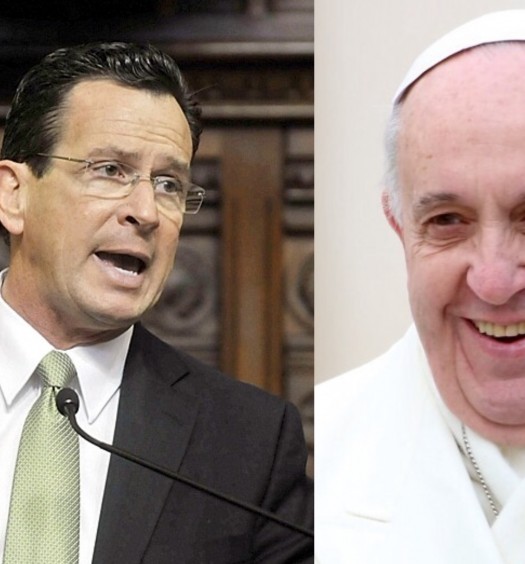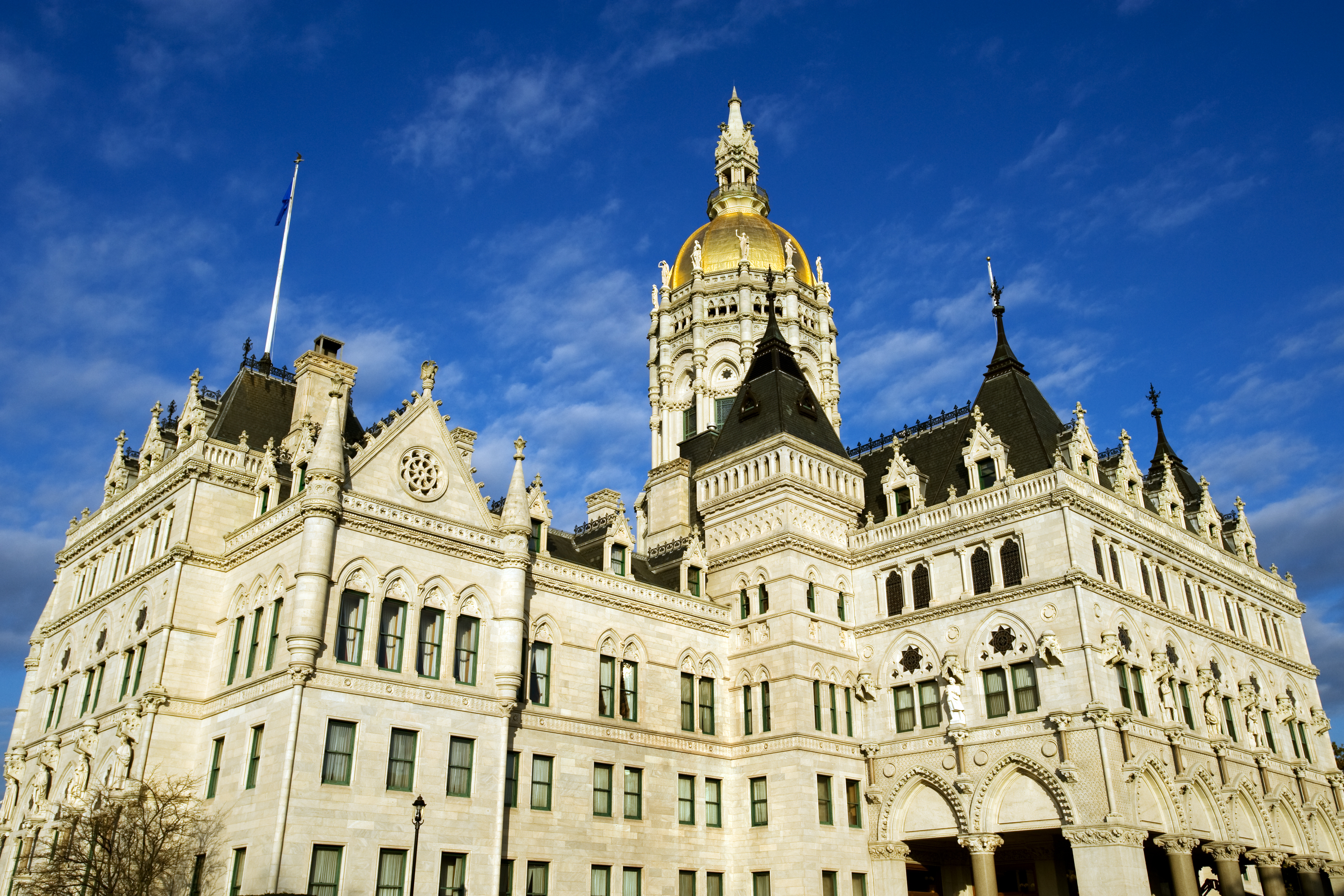The Annual March for Marriage takes place this Saturday, April 25. As the Supreme Court prepares to hear arguments on whether the states are obligated to redefine marriage, and the freedom of religious conscience objectors is threatened, a peaceful but firm witness could hardly be more important. (If you cannot get to Washington, D.C., you can still join the Virtual March for Marriage wherever you are.)
 In honor of the March for Marriage and of Earth Day, here’s a little pop quiz for everyone, but that Rome-watchers will especially love geeking out over: how is it “green” to be pro-life and pro-marriage?
In honor of the March for Marriage and of Earth Day, here’s a little pop quiz for everyone, but that Rome-watchers will especially love geeking out over: how is it “green” to be pro-life and pro-marriage?
For the answer, we turn to the last three popes, who have a much larger vision than just installing solar cells at the Vatican — although Benedict XVI did do that, earning him the nickname “Green Pope.”
Benedict and Francis have both noted that mankind is the steward as well as the beneficiary of nature; when the latter is nurtured and protected, so is the former. Elaborating on this idea in Caritatis in Veritate, Benedict writes:
“Nature expresses a design of love and truth. …it is a wondrous work of the Creator containing a “grammar” which sets forth ends and criteria for its wise use…
“…If there is a lack of respect for the right to life and to a natural death, if human conception, gestation and birth are made artificial, if human embryos are sacrificed to research, the conscience of society ends up losing the concept of human ecology and, along with it, that of environmental ecology. It is contradictory to insist that future generations respect the natural environment when our educational systems and laws do not help them to respect themselves. The book of nature is one and indivisible: it takes in not only the environment but also life, sexuality, marriage, the family, social relations: in a word, integral human development. Our duties towards the environment are linked to our duties towards the human person…”
The first “Green Pope” was nevertheless not the first to use the phrase “human ecology.” John Paul II before him wrote,
“The first and fundamental structure for “human ecology” is the family, in which man receives his first formative ideas about truth and goodness, and learns what it means to love and to be loved, and thus what it actually means to be a person. Here we mean the family founded on marriage, in which the mutual gift of self by husband and wife creates an environment in which children can be born and develop their potentialities, become aware of their dignity and prepare to face their unique and individual destiny.”
Francis, in turn, references Benedict in last year’s message on the World Day of Peace:
“The human family has received from the Creator a common gift: nature. The Christian view of creation includes a positive judgement about the legitimacy of interventions on nature if these are meant to be beneficial and are performed responsibly, that is to say, by acknowledging the “grammar” inscribed in nature…”
Early on in that same message — in the second paragraph — Francis says, “We should remember that fraternity is generally first learned in the family, thanks above all to the responsible and complementary roles of each of its members, particularly the father and the mother.”
This is really “out-of-the-box” thinking. If you’re hearing it for the first time, consider reading more. Marriage as the union of a man and a woman belongs within a comprehensive, coherent worldview about human beings’ relationship to nature, as creatures who are unique and, at the same time, part of a greater order. Ever ponder why two sexes exist, and what the implications are of their being able to beget children with relatively little effort? Marriage speaks to these basic questions. It is an outgrowth of our biology, which is outside our control, as well as our capacity to reason, which grows with good exercise.
Revolutionize what it means to be “green” — support natural marriage today!

















